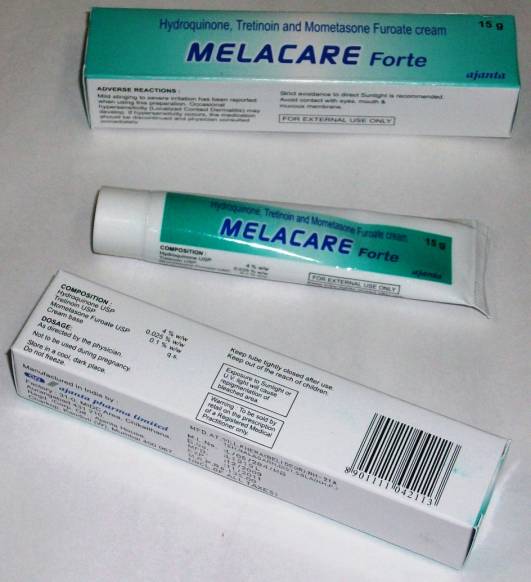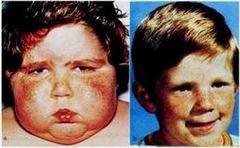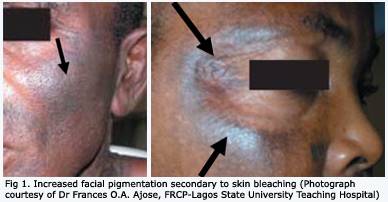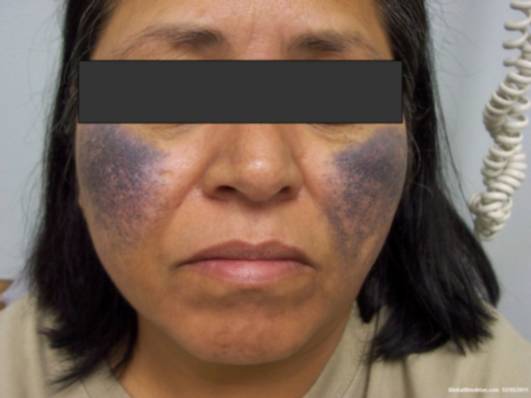Side effects of Melacare Forte
Melacare Forte is one of a large number of creams used by people in an attempt to lighten their skin.

I can't comment on the specific effects of this particular cream, but I can give you information about the known side-effects of its ingredients - and tell you about reports of problems being caused by other creams being used for skin-lightening purposes.
The ingredients of Melacare Forte
Melacare Forte apparently contains the active ingredients, Hydroquinone, Tretoin, and Mometasome Furoate.
Mometasome Furoate side-effects
Mometasome Furoate is a corticosteroid, and therefore carries all the risks associated with any powerful steroid drug.
In the case of creams containing Mometasome Furoate, the possible side-effects of this ingredient include:
- Changes in skin colour
- Thinning of the skin
- Allergic skin reactions
- Bacterial skin reactions
- Itchiness
- Tingling
- Stinging or burning
- Inflammation of the hair follicles
- Hair growth
Prolonged use can cause something called Cushing's syndrome, which can cause changes to the appearance of the face, like this:

Cushing's Syndrome can also cause poor growth, weak bones, cataracts and glaucoma.
Worryingly, too, it is not known whether Mumatasone Furoate taken by the mother can pass through breast milk into the baby.
Hydroquinone and Tretoin, and their side-effects
In terms of Hydroquinone and Tretoin, small amounts of both ingredients can be found in a number of prescribed medications, but are used in much higher concentrations in bootleg creams which promise a skin-lightening effect.
Over-the-counter sales of creams containing Hydroquinone are banned in the EU, and the FDA (Food and Drug Administration) are also said to be considering a similar ban.
Hydroquinone was found to cause cancer in rats and mice, which is why the European Union banned it from cosmetics as far back as 2001 - and it is also known to be irritant in the concentrations needed to lighten skin, particularly when combined with Tretoin.
Tretoin makes the skin more sensitive to UVA and UVB rays, and therefore users are normally advised to avoid sunlight.
Increasing concern about the risks to health caused by use of skin-lightening creams
There are reports that one of the side-effects of Hydroquinone is a blue-black darkening of the skin - as described in this article in The New York Times.
The British Skin Foundation is so concerned about the effects of some skin-lightening creams on people's health, that it is carrying out research into how serious the problem is.
In this press release, they say that some skin-lightening products which do not meet European Union regulations, "have the potential to be hugely damaging to the user's health".
They go on to say that, "Hydroquinone can cause intense irritation, uneven bleaching of the skin, and a distressing condition called cutaneous ochronosis, which is a bluish black discoloration of the skin".

Many other medical professionals, like this one are also desperate to warn people of the dangers, by showing what can happen to people's skin, due to use of skin-lightening creams.

What should I do, if I'm worried about my skin after using Melacare Forte, or other skin-lightening creams?
If I were you, I'd consult a doctor - as soon as possible - for urgent advice.
You could cause long-term damage to your skin if you don't, as, apparently, ochronisis can be permanent.
Why try to lighten your skin anyway?
I think everyone's natural skin colour is beautiful, no matter what colour it is, as this picture shows!

So I don't think you should feel that you have to change the colour of yours - especially not by using skin-lightening products that might risk damaging your health - and, eventually, your appearance!